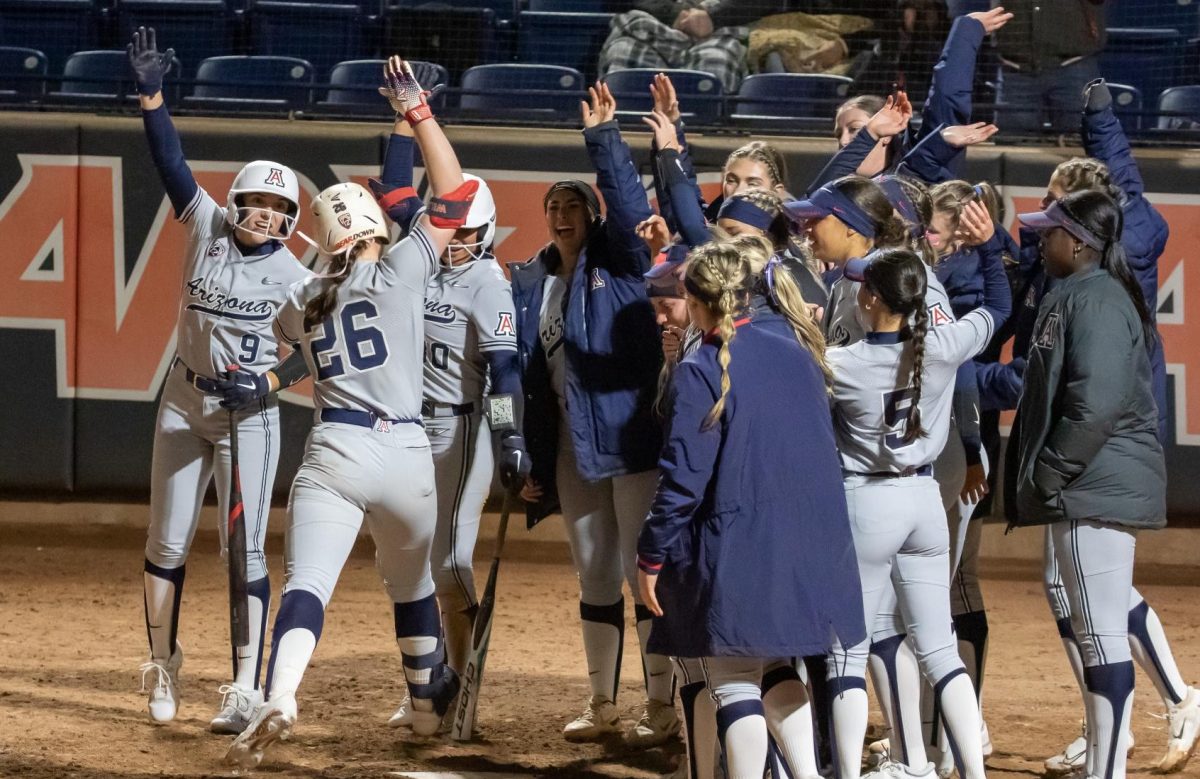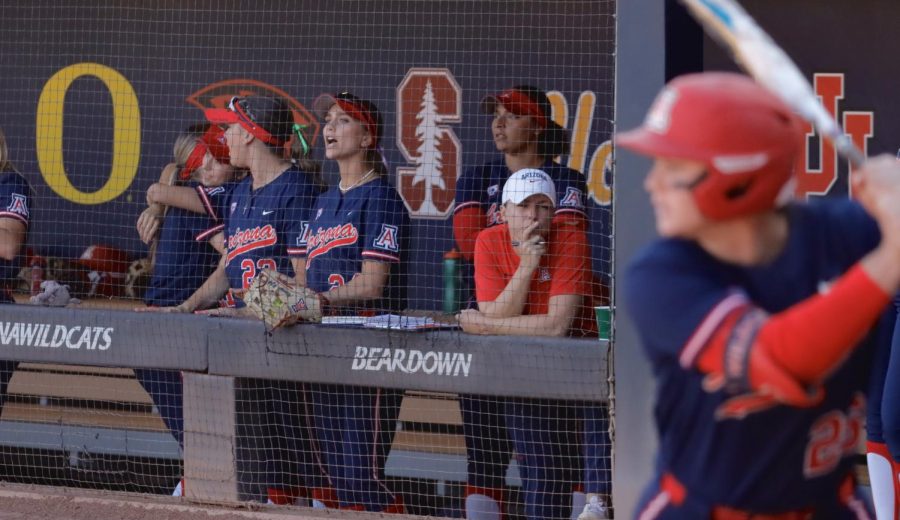In the world of college athletics, school must come first — after all, collegiate athletes are student-athletes.
The Arizona Laxcats hear this principle loud and clear.
“”We want to maintain a level of excellence with the team and academics,”” said lacrosse captain and peer-academic advisor Ryan Daly.
Although there are no obvious correlations between playing attack on the field and studying for a geography course, there is a very clear trend between academic work ethic and athletic performance.
As with most sports, the majority of success in lacrosse is mental. Developing good study habits and motivation for an academic goal has helped many Arizona lacrosse players stay focused on the field as well.
Keeping this in mind, head coach Mickey-Miles Felton has developed a productive process to keep his athletes keen and mentally sound.
“”At Arizona, you can get lost really quickly as a student,”” Felton said. “”One of the reasons we started practice late this year, as opposed to the last few years, is because I wanted guys to get acclimated to school before they had to worry about making a lacrosse team.””
Felton has no problem with his players missing practice for a study session, and even mandates that freshmen, transfer students and athletes with 2.5 grade point averages or lower attend weekly study halls.
If a player falls behind on his grades, traveling with the team is a problem — only players upholding their marks are eligible for dean’s excuses to travel.
“”It’s mainly a guiding process,”” Daly said of the study halls. “”We try to put them in the right direction if they have questions — it’s not like we sit and watch them study. It helped me out a lot when I was a freshman.
“”If you’re competitive on the field, you’re obviously not going to want to get a bad grade in the classroom, because you’ll feel like you lost,”” he added.
Similarly to the requirements of any college course, athletes must apply memorization and critical thinking to their athletics.
“”At this level we try to be real competitive, come spring we’ll have film sessions and look at scouting reports,”” Daly said. “”You have to know your assignment and what you’re up against.””
Getting accustomed to the group learning environments required by the team allows Daly and sophomore midfielder Brent Cambra to make a natural switch from the classroom to the lacrosse drawing boards to playing out on the field.
Felton likes to refer to this aspect of the game as “”lacrosse IQ.””
“”I don’t want to make robots outta’ them,”” he said. “”I want to teach them to understand the game.””
In all his years coaching, Felton said he has seen many athletes with learning disabilities struggle in the classroom but shine on the field. If they can learn to overcome these hardships and excel, then the sports world has truly embraced the mental realm as well.
“”Young athletes, male or female, with learning disabilities can thrive on the athletic field — you can take someone who is not ‘academically sound’ and they might thrive here,”” Felton said. “”They are able to focus differently on the field — and perhaps, more.””








